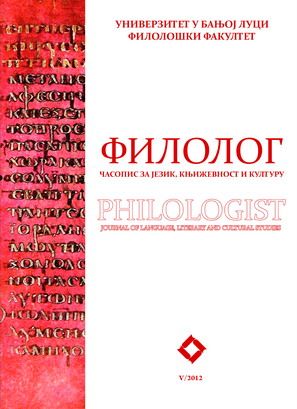“Trace” in Narration
“Trace” in Narration
Author(s): Aleksandra V. JovanovićSubject(s): Fiction, Comparative Study of Literature, Structuralism and Post-Structuralism, Philology, Theory of Literature, British Literature
Published by: Филолошки факултет Универзитета у Бањој Луци
Keywords: Derrida; deconstruction; trace; supplement; memory; dynamics of memory; Proust;
Summary/Abstract: The Derridean concept of “trace” or supplement is set at the core of his studies of the unconscious meaning of a text. Further, the textual unconscious is crucial to the deferral of meaning along the axis of difference / différance. In view of Derrida’s ideas, Kazuo Ishigoro’s novels, The Pale View of Hills and When We Were Orphans are analyzed as a narrative attempt to deconstruct the construction of reality that is grounded in conventional discourse. The article is based on the assumption that in Ishiguro’s novels the narrative process offers an insight into how the mind deals with experience. In this vein, the complex narration in Ishiguro’s novels is viewed as a parallel to the processes in the human mind. The analysis of Ishiguro’s narration is based on Beckett’s and Proust’s ideas about the issue of memory. Proust sees the dynamics of memory as a game of voluntary and involuntary memory, in which the former is a product of the conscious and the latter of the unconscious memory. On the other hand, Proust’s meditations on the nature of memory may be linked with Freud’s studies of repressed emotions and Samuel Beckett’s conception of the process of forgetting as essential to recollection.
Journal: Филолог – часопис за језик, књижевност и културу
- Issue Year: 2012
- Issue No: 5
- Page Range: 49-57
- Page Count: 9
- Language: English

